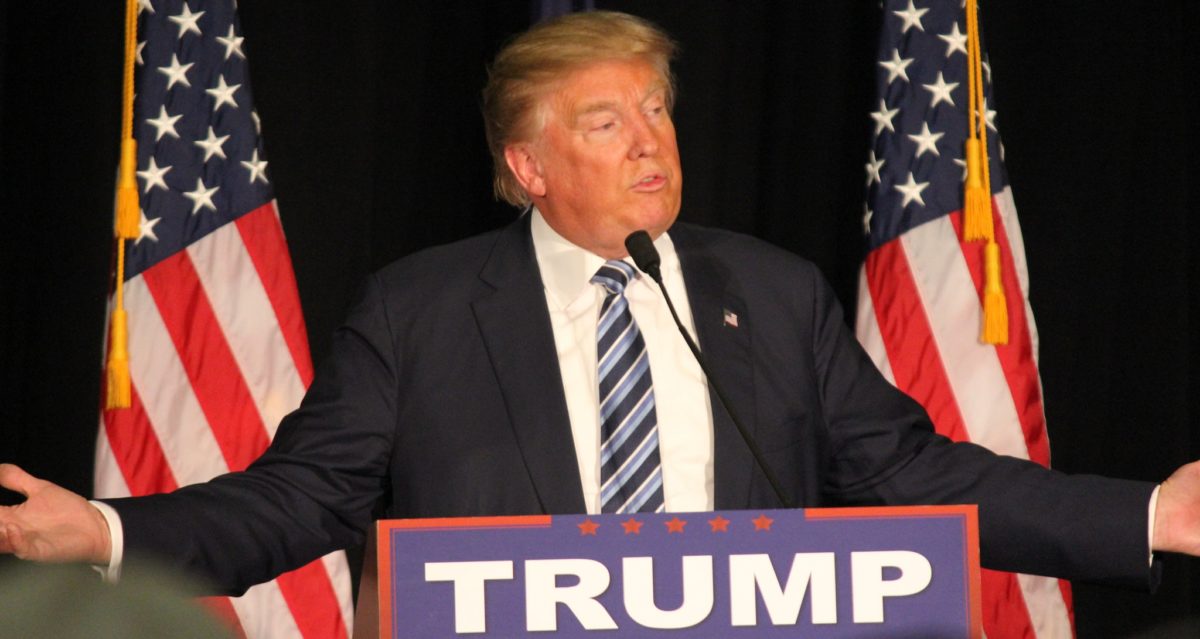While the world tries to judge whether U.S. president Donald Trump’s latest tweets are a genuine threat to end his trade war ceasefire with Beijing or merely a bargaining ploy, the latest 280-character outbursts could heighten tension in the boardrooms of the world’s biggest solar manufacturers.
Financial reporting season last week saw major Chinese solar players announce either big-spending expansion plans or reveal onerous debts, and the apparent threat of renewed hostilities between Beijing and Washington this morning hit share prices on the Hong Kong exchange where several PV manufacturers are listed.
The Hang Seng index was down more than 3% from Friday’s close at the time of writing after the U.S. president appeared to indicate he was losing patience with the pace of negotiations between the two nations.
In two tweets written at 5pm yesterday Eastern Standard Time (11 pm CET), the president wrote: “For 10 months, China has been paying Tariffs to the USA of 25% on 50 Billion Dollars of High Tech, and 10% on 200 Billion Dollars of other goods. These payments are partially responsible for our great economic results. The 10% will go up to 25% on Friday. 325 Billions Dollars….
“…of additional goods sent to us by China remain untaxed, but will be shortly, at a rate of 25%. The Tariffs paid to the USA have had little impact on product cost, mostly borne by China. The Trade Deal with China continues, but too slowly, as they attempt to renegotiate. No!”
Anxious boardrooms
Those messages – the grammar has not been corrected by pv magazine – were enough to affect stock market indexes on both sides of the Pacific and also saw the value of the renminbi/yuan fall against the dollar, although the Chinese currency had staged a partial recovery at the time of writing.
With Chinese inverters imported by U.S. developers potentially affected by any rise from 10% to 25% tariffs brought forward by Trump – and solar cells, AC modules and some batteries already affected by U.S. import tariffs – any big swings in currency and share prices could alarm boardrooms at companies such as PV developer Panda Green and manufacturers Shunfeng and Yingli, which are struggling with mountains of debt.
The support offered by Chinese lenders to such heavily debt-geared businesses – with the overt encouragement of the Beijing authorities as part of China’s drive for subsidy-free solar – is one of the central planks of Trump’s arguments in favor of imposing import tariffs, in order to level the playing field. The fact the Chinese currency staged such a swift rebound this morning will presumably serve to further irritate a president who also accuses Beijing of currency manipulation.
This content is protected by copyright and may not be reused. If you want to cooperate with us and would like to reuse some of our content, please contact: editors@pv-magazine.com.




One the one hand, it has been shown time after time that you can’t stay in business making modules in the US, so why not let the Chinese make them and lose money? Hooray for cheap panels. On the other hand, the Chinese will lose money and go out of business. Who makes solar panels then? Maybe if modules go up a few cents per watt they can be made in the US and everywhere else, assuring a stable supply. With all the installations you guys report, it looks like we need stable supply! Yes, Trump’s trade negotiations have a negative impact on my personal solar projects, but in the long run, his actions have generally netted positive results, so let the guy do his thing.